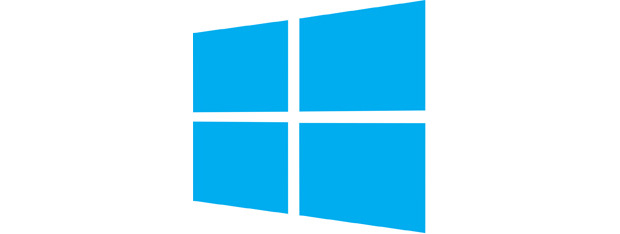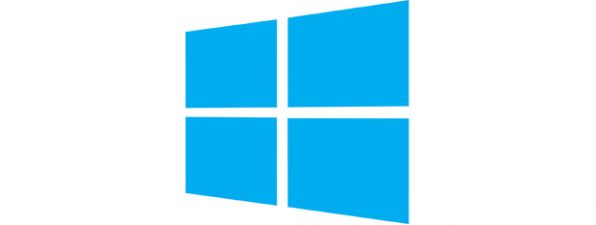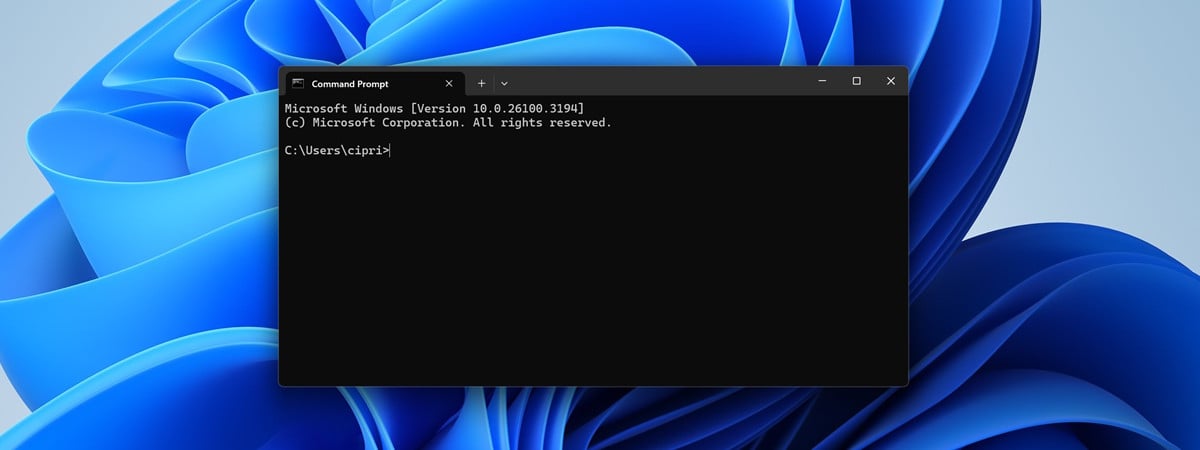
Lately, I notice a strong debate about Windows 8. People tend to either hate it or love it. There are no moderate verdicts being shared. Those who hate it share mostly the same complaints, many of which I think are wrong. That's why I decided to share my view on those arguments and what I believe is the main thing people don't understand about Windows 8.
The Most Common Arguments Shared by People Who Hate Windows 8
When you read articles, blog posts or comments were written by people who hate Windows 8, they invariably share these arguments:
- I hate Metro - it is not useful with a mouse and keyboard and Metro apps are not as useful as desktop applications. - First of all Metro is a touch-oriented interface that offers support for a mouse and keyboard. So yes, it is easier to use with your fingers on a touch screen or a tablet. But, it is not hard to use the mouse and keyboard either. You just need to learn that a right-click will bring the contextual menu with options for each app and how to use the charms on the right. Once this is learned, Metro becomes easy to use a mouse and keyboard. Yes, Metro apps are not as useful as desktop apps. First, Windows 8 is not yet launched so the number of available apps is small. Most of them are beta versions and early prototypes. There are some great Metro apps but until we see a big number of them, it will take a while and Windows 8 needs to be launched first. However, the Desktop is fully present in Windows 8. It works as you know it and it received further tweaks and improvements compared to Windows 7. You do not have to use Metro apps. If you do not like them, simply don't use them. Continue to use the Desktop applications you've grown to love. They continue to exist and work incredibly well.
- I hate the ribbon in Windows 8 - that's what most people said about the ribbon when it was first introduced in Microsoft Office 2007. And yet, it has become a great interface paradigm which makes features more visible and easier to use. We've published some interesting articles about it: Windows 8 Analysis: Is the New Ribbon Interface More Efficient? and 12 Reasons why Windows Explorer in Windows 8 Rocks. If they are not arguments good enough to convince you otherwise, I'm not sure anything else will. Personally, when Microsoft Office 2007 was launched, I was intrigued. For a day or two I had a hard time getting around, and getting rid of the old interface paradigm. But once the learning was done, I loved the ribbon and it made me incredibly productive. When I saw it in Windows 8, I could not help but feel happy. I was productive right away because the same principles are applied and finding my way was easy. If you have used the newer versions of Microsoft Office, you will have no trouble using the ribbon in Windows 8, without any learning curve.
- It requires re-education - Personally, I do not consider this a real argument. Evolution always requires re-education. If we want the future of computing to become a reality sooner rather than later, we need to constantly re-educate ourselves and learn new technologies, interface paradigms, etc. Finding your way in Windows 8 is not that hard. You need to learn some new keyboard shortcuts, some new gestures and you are done. People needed to re-educate themselves when going from Microsoft Office 2003 to Microsoft Office 2007. And Microsoft Office 2007, as well as 2010, are very successful products. People needed to re-educate themselves when going from Windows 98 to Windows XP, and when going from Windows XP to Windows 7. Nobody can contest the success of Windows XP and Windows 7.
Arguments That Do Have a Point
There are people who share valid arguments too. And I do agree with them or portions of them:
- The Start Screen sucks, I want the Start Menu back - Personally, I do not think the new Start Screen sucks. The old Start Menu was crowded, forced you to scroll a lot through shortcuts and not that great if you analyze it objectively. Its only real plus is the fact that everybody knows it, uses it and expects it to be there.However, the new Start Screen does need further improvements even though it makes search a lot faster. If you love using search to find for shortcuts, files, and folders in Windows 7, you will be able to do the same, sometimes faster in Windows 8. But, the new Start Screen does have issues with how it is organized. We highlighted some negative aspects in our analysis: Windows 8 Analysis: Is the Start Screen an Improvement vs. the Start Menu? and we do believe Microsoft needs to make further improvements to make people forget about the Start Menu.
- The ribbon on a touch screen - This argument is only which cannot be debated and, in my opinion, is 100% valid. Windows Explorer and other Windows 8 programs with a ribbon interface will be available also on systems and devices with touch screens. While the ribbon is great with a mouse and keyboard, it might not be great with touch, at least not the way it is implemented in Windows 8 Release Preview. Microsoft promised to make some changes in this area, that will be revealed in the final version of Windows 8. Considering that Microsoft is developing a touch optimized interface for Microsoft Office 15, I trust that even this problem will be tackled. More details about the work done on Microsoft Office can be found here: Exclusive: Microsoft Office 15 features and improvements.
Windows 8 Haters Need to Understand That Windows 8 is About the Future!
Many Windows 8 haters will also say that they don't want a hybrid interface on a desktop. All of them miss a very important aspect: the main purpose of Windows 8 is not to be used on today's computers and devices but on those of tomorrow. Sure it will work on today's devices (it has to), but that's not the point.
If you pay attention to the demos and presentations made by Microsoft and to certain news articles, you quickly realize that the main role of Windows 8 is to revitalize the hardware and software world. To accelerate the future!
Microsoft doesn't want Windows 8 to be used that much on classic computers, even if it will be used mostly on them at the beginning. Microsoft wants Windows 8 on the computers of tomorrow. Here are a few examples of computing scenarios to consider, except the obvious tablet:
- Hybrid devices such as Asus Transformer, with Windows 8. There's already a prototype that dual boots Windows 8 and Android. Also, read this article about an Intel prototype: Intel Shows Off Ultrabook-Tablet Hybrid Running Windows 8.
- Laptops with trackpad gesture support. It is already here in primitive form.
- Laptops with Kinect included.
- Desktops with Kinect for Windows. This technology is already here and I wish Kinect for Windows was available in my home country - Romania - so that I can use it with Windows 8. Since laptops and Windows Phones with Kinect make sense, I think desktops with Kinect make even more sense.
- Touch displays for desktops, laptops and whatever device you want to connect them to. We are all used to high definition displays you can't interact with. But what if they were replaced with touch displays, that also integrated Kinect? Windows 8 at that point would make even more sense.
To complete the picture, there are some cool tablet concepts being shared as well. Details about one such concept can be found here: Hands-on with Microsoft Surface for Windows RT, Touch Cover and Type Cover. A complete evaluation of Windows 8 should include testing its performance and usability on devices like those previously mentioned.
Windows 8 is highly dependent on hardware manufacturers, more than any other operating system ever built. If they innovate and bring to the world exciting new devices, that can take advantage of Windows 8 and what it can do, then people will notice, software developers will notice, the press will notice. If this happens, the both the IT industry and consumers will benefit.
Windows 8 - Microsoft Biggest Bet EVER!
While Windows 8 haters do have some valid arguments, Windows 8 is not going to be as awful as they say. There are many pluses to the hybrid nature of Windows 8 as well as there are shortcomings. Declaring that Windows 8 sucks, without waiting for the final version to show up is a bit short-sighted, especially when Microsoft has declared very openly that there are still many changes to come in the final version.
Personally, I very much appreciate what Microsoft is trying to do with Windows 8. I've noticed many improvements from the Developer Preview to the Release Preview and I believe they will reveal some interesting surprises in the final version. I hope that my opinion will resonate with you and convince you to give a final verdict about Windows 8 only after it is launched. After we get to see real new devices with Windows 8, not just prototypes and ideas.
I very much understand and appreciate Microsoft's end goal - one operating system and one experience on all your devices: your phone, your Xbox, your desktop, your laptop, your tablet, your hybrid computing device you don't yet know how it looks like. I wish them good luck. If they succeed with this vision, they will change how we use computers and devices forever.


 19.06.2012
19.06.2012 


